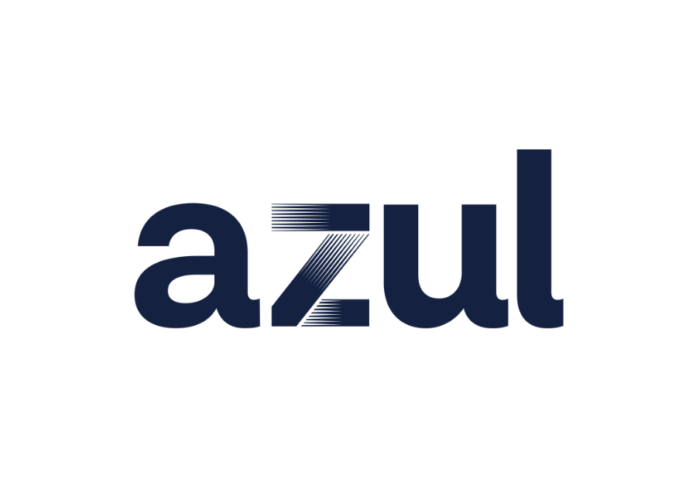
Survey of over 2,000 Java professionals also reveals: 71% struggle with unused cloud compute capacity, 62% report DevOps productivity loss due to dead or unused code, and 50% use Java for AI development
INDIA — Jan. 29, 2025: Azul, the only company 100% focused on Java, released its second annual Azul State of Java Survey & Report today, offering insights into how organizations leverage Java in an evolving technology landscape. The report includes responses from more than 2,000 Java professionals worldwide, uncovering how enterprises are tackling Oracle Java pricing and licensing challenges, the strategies organizations are adopting to address cloud costs, factors impacting DevOps productivity, and the role Java is playing in AI development.
Of all businesses contacted globally to participate in the Azul 2025 State of Java Survey & Report, only 1% of respondents were disqualified from taking the survey because they did not use Java in their enterprise — highlighting that 99% of organizations surveyed actively use Java. In addition, nearly 70% of respondents indicate that more than half of their applications are built with Java or run on a Java Virtual Machine (JVM), confirming Java’s fundamental role in today’s businesses.
Other key findings from the 2025 State of Java Survey & Report include:
The Shift Away from Oracle Java Gains Momentum
Two years after Oracle introduced its employee-based pricing for Oracle Java SE, concerns remain high. 82% of Oracle Java users expressed unease with its cost model — the same percentage reported in the Azul 2023 State of Java Survey & Report. The percentage of organizations considering alternatives to Oracle Java has also jumped significantly – from 72% in 2023 to 88% today. The top five reasons given for considering a migration away from Oracle Java (where respondents could select all that apply) include: cost (42%), preference for open-source (40%), Oracle sales tactics (37%), uncertainty created by ongoing changes to pricing and licensing (36%), and restrictive Oracle policies (33%). These responses underscore that organizations increasingly seek cost-effective, flexible, and transparent alternatives to Oracle Java to mitigate financial and operational risks.
Organizations Tackle Cloud Cost Challenges, But Overruns Still High
Nearly two-thirds of organizations report that Java workloads account for over 50% of their cloud compute costs. In a clear sign of inefficient resource allocation, 71% of companies have more than 20% unused cloud compute capacity they’re paying for. Organizations are responding by taking steps to better align their cloud investments with actual usage including leveraging newer, more efficient compute instances and processors (35%) and utilizing a high-performance JDK (24%). Of those using a high-performance JDK, the top two reasons cited were to “improve application performance” and “optimize cloud compute costs.”
DevOps Productivity Impacted by Code Management and Security Issues
The survey reveals significant challenges to application development productivity. 62% of respondents report that dead or unused code impacts their DevOps teams’ effectiveness. Security concerns compound these challenges, with 33% reporting that their DevOps teams waste more than half their time addressing false positives from Java-related security vulnerabilities. Additionally, 49% of companies are still experiencing security vulnerabilities from Log4j in production – three years after its initial discovery.
Java Powers Enterprise AI Development
Java’s growing role in artificial intelligence is becoming increasingly evident, with 50% of organizations using Java to build AI functionality, surpassing both Python and JavaScript for AI development among Java-centric enterprises. However, this AI adoption comes with infrastructure implications — 72% of organizations indicate they will need to increase their
compute capacity to support Java applications with AI functionality. While the survey focused on organizations already invested in Java, it does highlight that Java developers continue to innovate with Java, leveraging the programming language’s robust library ecosystem to embrace emerging technologies like Al. This further solidifies Java’s role as a cornerstone for modern, future-ready application development.
“Our report shows organizations are actively seeking ways to optimize their Java deployments to drive operational efficiency and cost predictability,” said Scott Sellers, co-founder and CEO at Azul. “As Java continues to be the backbone for business-critical applications in the enterprise, we’re seeing important trends — from the growing interest in Oracle Java alternatives to cloud optimization strategies, improvements in DevOps productivity, and innovation with AI.”
To access Azul’s full 2025 State of Java Survey & Report, visit www.azul.com/state-of-java-2025/.
Also read: Viksit Workforce for a Viksit Bharat
Do Follow: The Mainstream formerly known as CIO News LinkedIn Account | The Mainstream formerly known as CIO News Facebook | The Mainstream formerly known as CIO News Youtube | The Mainstream formerly known as CIO News Twitter
About us:
The Mainstream formerly known as CIO News is a premier platform dedicated to delivering latest news, updates, and insights from the tech industry. With its strong foundation of intellectual property and thought leadership, the platform is well-positioned to stay ahead of the curve and lead conversations about how technology shapes our world. From its early days as CIO News to its rebranding as The Mainstream on November 28, 2024, it has been expanding its global reach, targeting key markets in the Middle East & Africa, ASEAN, the USA, and the UK. The Mainstream is a vision to put technology at the center of every conversation, inspiring professionals and organizations to embrace the future of tech.





